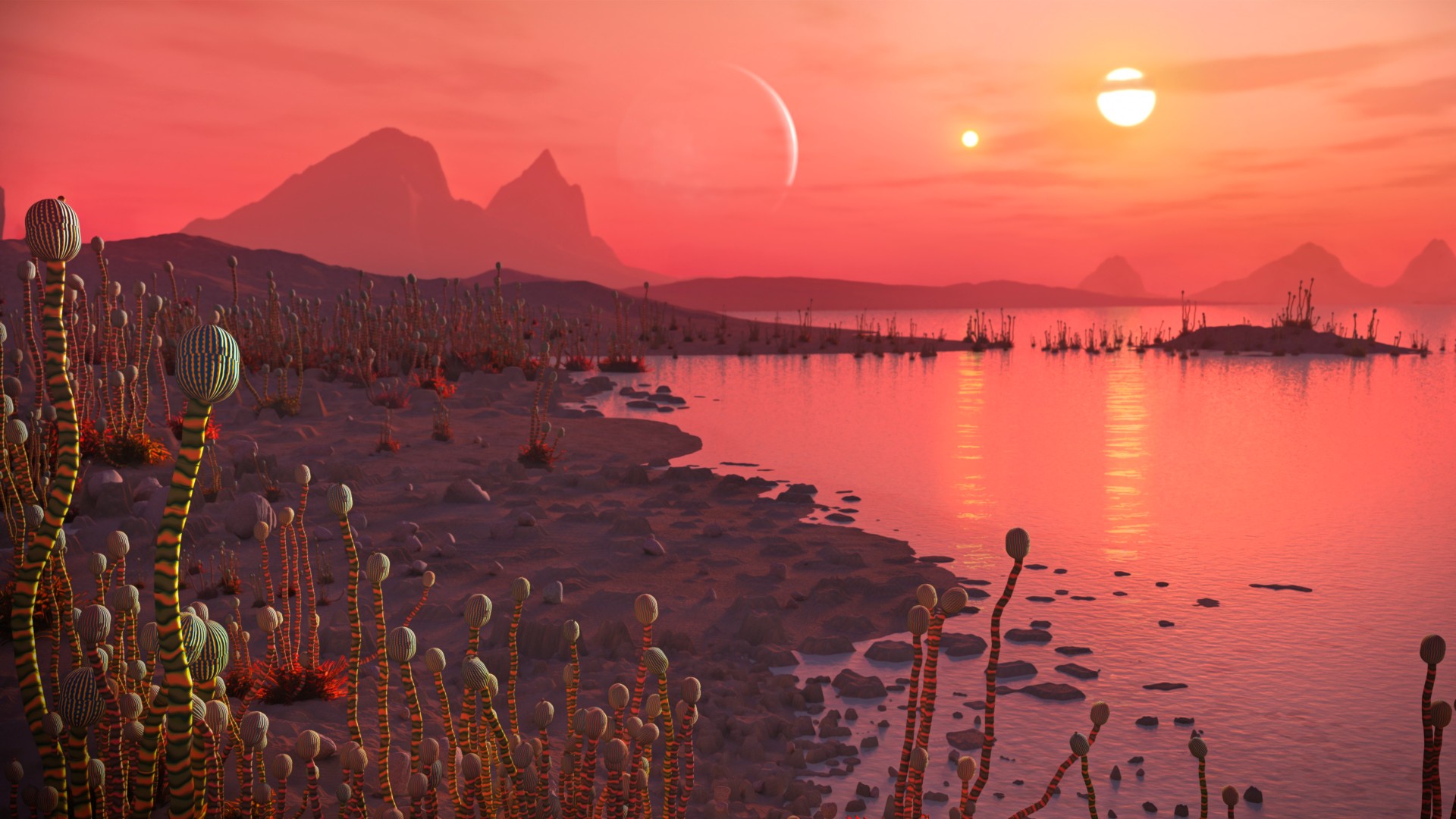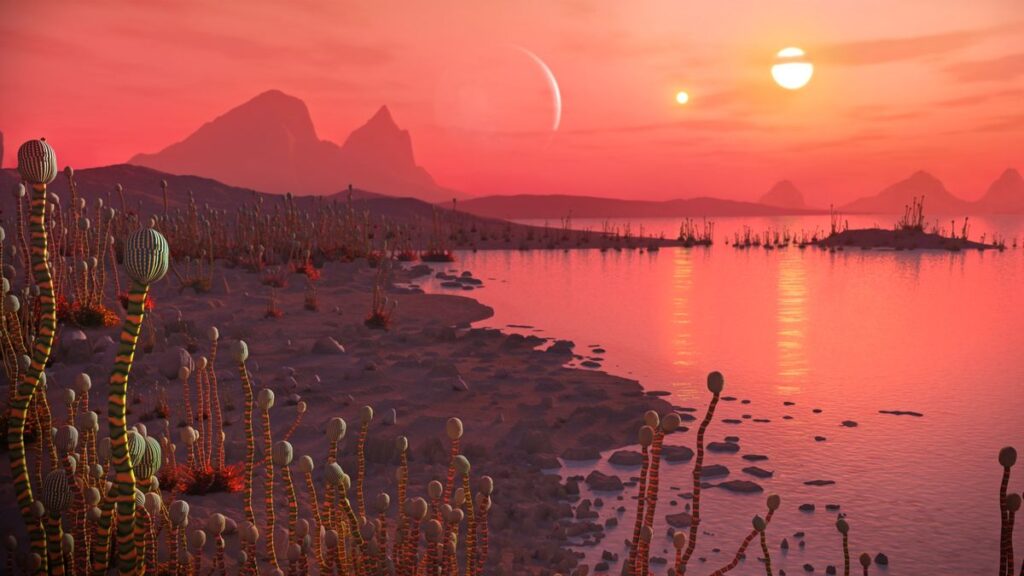
The emergence of human life may not have been as improbable as scientists once thought, a new model suggests. The finding increases the likelihood of intelligent life elsewhere in the universe, the researchers say.
Previously, scientists assumed that for human life to emerge on Earth, it needed to pass through a series of “hard steps” — flukes in evolution that are incredibly unlikely to occur within the lifetime of an average star. This makes our position as intelligent observers of the universe a rare occurrence and our chances of finding intelligent aliens low.
But a new model has challenged this decades-old assumption by proposing that human intelligence wasn’t a long shot but instead an outcome that unfolded according to predictable geological processes. The researchers published their findings Feb. 14 in the journal Science Advances.
“We’re arguing that intelligent life may not require a series of lucky breaks to exist,” lead author Dan Mills, a researcher at the University of Munich, said in a statement. “Humans didn’t evolve ‘early’ or ‘late’ in Earth’s history, but ‘on time,’ when the conditions were in place. Perhaps it’s only a matter of time, and maybe other planets are able to achieve these conditions more rapidly than Earth did, while other planets might take even longer.”
First proposed by physicist Brandon Carter in 1983, the hard steps model is an attempt to explain why humans emerged on Earth so late in the life of the sun — roughly 4.5 billion years into its 10 billion-year lifespan. Carter reasoned that intelligent life evolved through a chain of highly improbable evolutionary events — the formation of replicating molecules, the emergence of RNA and DNA, the evolution of multicellular organisms, and the inventions of sex and language.
Related: Alien life may look nothing like life on Earth — so how should we go about looking for it?
Carter’s proposal quickly took root in astrobiology, encouraging the view that our own evolution was a remarkably uncommon accident and that the odds of us encountering human-like beings elsewhere in the universe was, therefore, dishearteningly low.
But it may not be true after all, the new research suggests. By combining expertise in physics and geobiology, they studied the key steps that led to the evolution of life on our planet.
This produced a model that explains our origins through the sequential openings of key “windows of habitability,” such as oxygen and nutrient availability, ocean salinity and sea surface temperatures. According to this model, human life didn’t emerge late on our planet but simply when the planetary conditions were right.
“We’re taking the view that rather than base our predictions on the lifespan of the sun, we should use a geological time scale, because that’s how long it takes for the atmosphere and landscape to change,” Jason Wright, a professor of astronomy and astrophysics at Penn State and a co-author of the paper, said in the statement. “These are normal timescales on the Earth. If life evolves with the planet, then it will evolve on a planetary time scale at a planetary pace.”
To test this new proposal, the researchers outlined a number of research projects that include testing unicellular and multicellular organisms at extreme temperatures and oxygen levels to ascertain the range of conditions in which they could have emerged. They also proposed scanning the atmospheres of distant exoplanets for key biosignatures, such as the existence of oxygen, and searching the evolutionary record for signs that singular innovations on the path to human life (such as photosynthesis and eukaryotic cells) evolved more than once.
“This is a significant shift in how we think about the history of life,” co-author Jennifer Macalady, a professor of geosciences at Penn State, said in the statement. “It suggests that the evolution of complex life may be less about luck and more about the interplay between life and its environment, opening up exciting new avenues of research in our quest to understand our origins and our place in the universe.”
